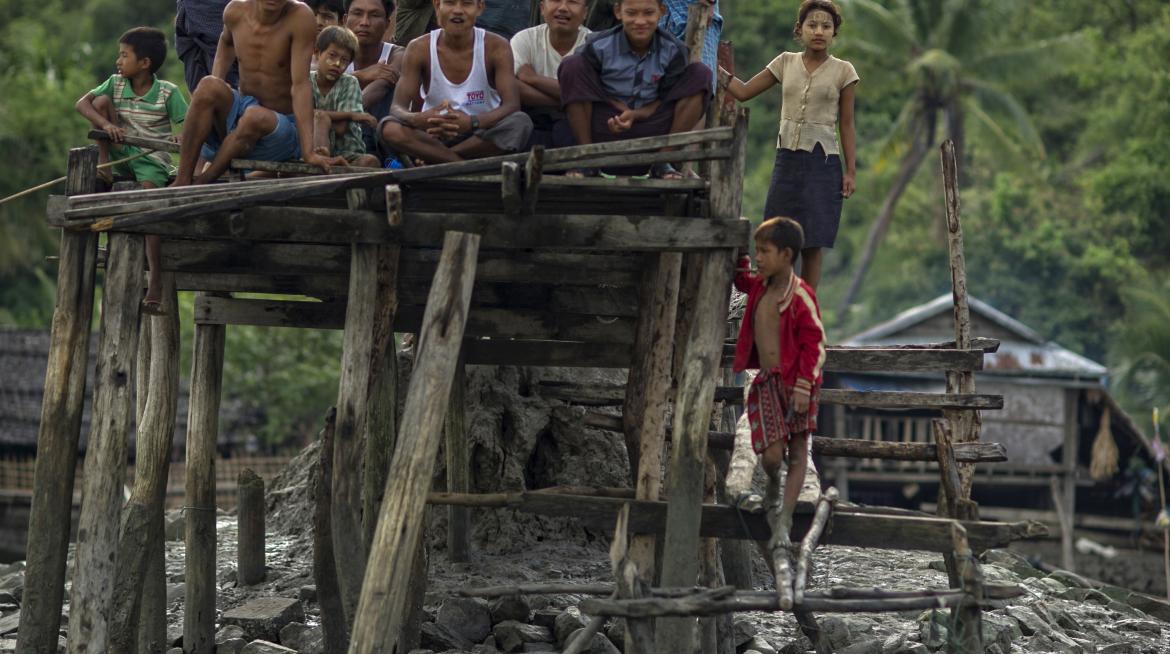
As humanitarian agencies and organisations work to provide emergency food and assistance to flood and landside-affected communities, LIFT is providing assistance specifically directed towards re-establishing livelihoods and food security within its projects that are in the flood areas. One of LIFT’s aims is to increase the resilience of poor rural households and communities to shocks and stresses, such as these severe floods.
There are currently nine LIFT funded projects in the main flood areas in the Dry Zone, Uplands Areas and Rakhine State and, as the flood waters move downstream towards the Ayeyarwady Region, others will be affected.
LIFT is working with partners to reallocate existing budgets where appropriate. In addition, the Fund Board has allocated another $1 million towards re-establishing post-flood livelihoods and food security within LIFT’s existing projects.
The support will, among other measures, provide seeds for replanting crops, repair damaged embankments that protect crop land, and support LIFT microfinance organisations to deliver financing to help people to re-establish their livelihoods.
So far, $37,000 has been reallocated for use by LIFT partner the International Rescue Committee in Minbya Township, Rakhine State, to purchase rice seeds to replant 2,100 acres of ruined paddy and to reinstate drinking water sources, within LIFT's Tat Lan Programme.
There are a number of proposals currently under consideration, the details of which will be released shortly.
In addition, LIFT has extended the deadline for the Uplands Call for Concept Notes to ease the strain on partners involved in flood response.
LIFT is funded by Australia, Denmark, the European Union, France, Ireland, Italy, the Netherlands, New Zealand, Sweden, Switzerland, the United Kingdom and the United States of America. From the private sector, the Mitsubishi Corporation is a donor.
LIFT is managed by UNOPS.
Photo credit: The Tat Lan Programme


